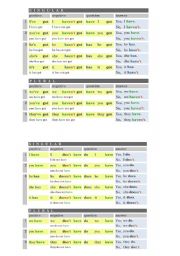
|
HAVE + HAVE GOT (charts)
These are two detailed tables with the verb HAVE (AmE) and HAVE GOT (BrE). You can print the sheet, cut it in half and use only the table that suits your your lessons best (most books use HAVE GOT, but not all). To more advanced students you can distribute both. TO MODERATORS: I also publish on www.helpforenglish.cz under the same name and you can ...
Level: elementary
Age: 8-17
Type: flash-card
Downloads: 7
|
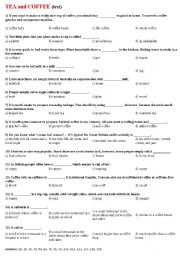
|
TEA and COFFEE (vocabulary test)
This is a test that focuses on collocations connected with TEA and COFFEE. I know there are no pictures of teas, coffees, cups and saucers, but it is intended for adults and I am not good at adding colourful pictures or background. There is a lot of very useful information though. It is very popular with my students. I also publish on helpforenglis...
Level: elementary
Age: 10-17
Type: worksheet
Downloads: 45
|
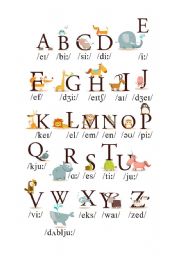
|
ALPHABET (animals)
This is the English ALPHABET with TRANSCRIPTION of the letters which are represented by various animals. The animals are as follows: ant, bird, cow, dog, elephant, fox, giraffe, horse, ibex, jellyfish, kangaroo, lion, monkey, newt, owl, penguin, quail, rhino, snail, turtle, unicorn, vulture, whale, "x-ray", yak, zebra. TO MODERATORS: I also publish...
Level: elementary
Age: 6-17
Type: flash-card
Downloads: 45
|
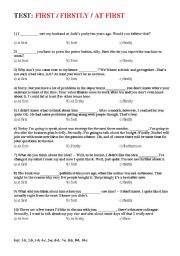
|
FIRST / FIRSTLY / AT FIRST (test)
A test (with key) that focuses on FIRST vs. AT FIRST vs. FIRSTLY. Students usually confuse these three. (I also publish at www.helpforenglish.cz, where you can see this worksheet as well)
Level: intermediate
Age: 10-17
Type: worksheet
Downloads: 21
|
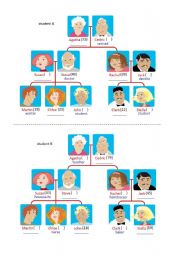
|
FAMILY TREE (GAME)
This is a simple game for two students. They should ask questions like �How old is Steve�s mother?� or �What�s Susan�s borther�s job?�. The object of the game is to fill in the missing information (age, job). You can find a similar worksheet here: http://www.eslprintables.com/printable.asp?id=477987 (this time it is with words like nephew, grandmot...
Level: elementary
Age: 8-100
Type: activity-card
Downloads: 61
|
|
|
|